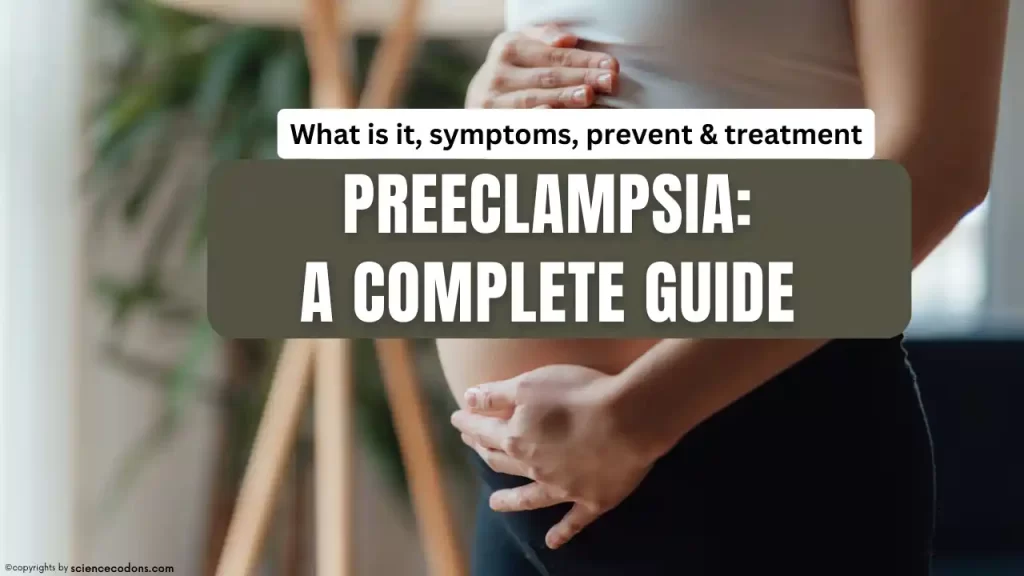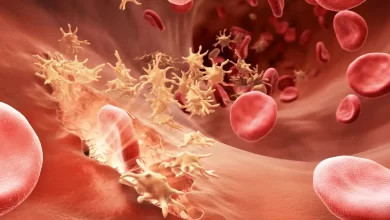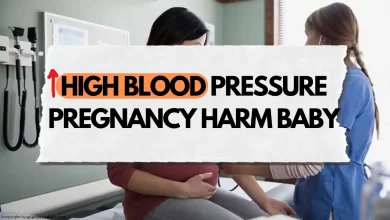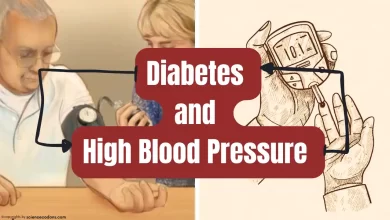Pregnancy is a special period in the life of all women. However, this period can also be accompanied by challenges for women. Findings show that blood pressure increases in about 10% of pregnant women. In this article, we will become more familiar with high blood pressure during Pregnancy (preeclampsia).

Hypertension in Pregnancy (preeclampsia)
High blood pressure during Pregnancy or pregnancy-induced hypertension is when the maximum blood pressure (systolic) is 140 millimeters of mercury or higher, or the minimum blood pressure (diastolic) is 90 millimeters of mercury or higher, or there is a gradual increase in blood pressure during Pregnancy.
High blood pressure after the 20th week of Pregnancy that is accompanied by protein excretion in urine samples is called preeclampsia. This disorder usually begins after the 37th week of Pregnancy, but it can occur at any time during the second half of Pregnancy, during childbirth, or even after childbirth (usually the first 24 to 48 hours after childbirth). This disorder may also occur before the 20th week of Pregnancy in rare cases such as molar Pregnancy.
What is the normal blood pressure for a pregnant woman?
According to the American College of Obstetricians and Gynecologists (ACOG), the normal blood pressure for a pregnant woman is less than 120/80 mm Hg. However, some doctors may prefer to see readings lower than 115/75 mm Hg.
Preeclampsia(Hypertension) symptoms
- Systolic blood pressure greater than 140 or diastolic blood pressure greater than 90 millimeters of mercury
- Sudden weight gain of more than one and a half kilograms per week
- Protein in the urine
- Vision problems
- Headache
- Swelling of the hands, feet, and face
- Shortness of breath, nausea, and vomiting, changes in consciousness
- Decreased urine output
Risk factors and causes
- Women over 35 years of age, especially if Pregnancy is due to fertility technologies.
- It is more common in young women who are pregnant for the first time.
- People with chronic vascular diseases such as diabetes and lupus.
- Patients who are genetically predisposed to preeclampsia.
- In multiple pregnancies, this toxicity may occur even before the 20th week of Pregnancy.
- Obesity is a significant risk factor for this disease.
- Insulin resistance
- Maternal infections
- Low socioeconomic status
- Polyhydramnios or an increase in amniotic fluid.
If a mother has high blood pressure before pregnancy and enters pregnancy with high blood pressure, it is called chronic hypertension. Suppose the mother used blood pressure-lowering medication before pregnancy. In that case, the medication should be changed or the dose adjusted under the supervision of a doctor and a specialist in women’s health if necessary. It is also necessary to check the mother’s health for injuries that high blood pressure can cause to other organs, such as the heart and kidneys.
In healthy individuals, blood pressure (especially diastolic or minimum blood pressure) often decreases in the first half of pregnancy and especially after the second trimester of pregnancy. Therefore, a woman with chronic high blood pressure may face this phenomenon, and blood pressure may decrease somewhat in the first half of pregnancy. However, in women with chronic high blood pressure, preeclampsia is added to it, blood pressure increases after 20 weeks, and complications of preeclampsia (preeclampsia) occur.
How to prevent preeclampsia (high blood pressure during Pregnancy)
High blood pressure is one of the most severe and dangerous complications that can affect mothers during Pregnancy. Since it does not always have symptoms, accurate examinations and blood pressure measurements are recommended for pregnant mothers at each visit. An unhealthy lifestyle can lead to high blood pressure during Pregnancy.
It is also good to pay attention to the following points:
- Being overweight, and inactive are among the most important risk factors for developing high blood pressure.
- Women who experience their first Pregnancy are more likely to develop high blood pressure. The likelihood of high blood pressure during Pregnancy in subsequent pregnancies with the same partner is lower.
- The mother’s age is also a factor; because pregnant women over 40 are more at risk.
- Women with high blood pressure are at greater risk of pregnancy-related complications than people with normal blood pressure before Pregnancy.
- Common risk factors for high blood pressure, such as obesity and a history of high blood pressure, can be reduced through diet, exercise, and not smoking or drinking alcohol. Dietary regimens for expectant mothers vary among individuals. Talk to a nutrition specialist who should consider your weight and height when creating a nutrition plan.
- Pregnancy causes hormonal changes as well as psychological and physical changes. This can create stress, which makes blood pressure control more difficult. Stress reduction techniques are very helpful.
Treatment of preeclampsia
Outpatient treatment: Except for women who have a blood pressure of less than 140 (systolic) and 90 (diastolic) without protein in their urine, blood pressure can be controlled on an outpatient basis. More rest during the day and two visits per week are essential, and you should be aware of symptoms such as headache, blurred vision, and dizziness.
In-hospital treatment: If blood pressure is higher than 140 (systolic) and 90 (diastolic), the patient should be hospitalized and treated, and in the case of severe preeclampsia, if blood pressure is higher than 160 (systolic) and 110 (diastolic), the patient should be hospitalized and the Pregnancy should be terminated quickly.
Magnesium sulfate is essential for preventing seizures that may occur, either intramuscularly or intravenously, and continues for up to 24 hours after delivery.
NOTE: High blood pressure during Pregnancy usually improves within two weeks after delivery; otherwise, the patient should see a doctor.
Remember: Preeclampsia is a serious condition, but with proper monitoring and management, most women with preeclampsia have healthy pregnancies and babies. Be sure to get regular prenatal care and contact your doctor immediately if you experience any symptoms of preeclampsia.
Resources:
Preeclampsia Foundation: https://www.preeclampsia.org/






